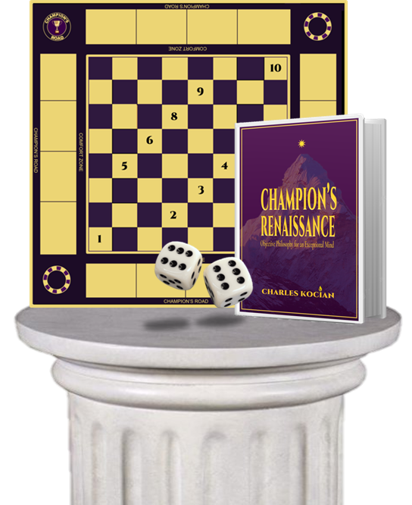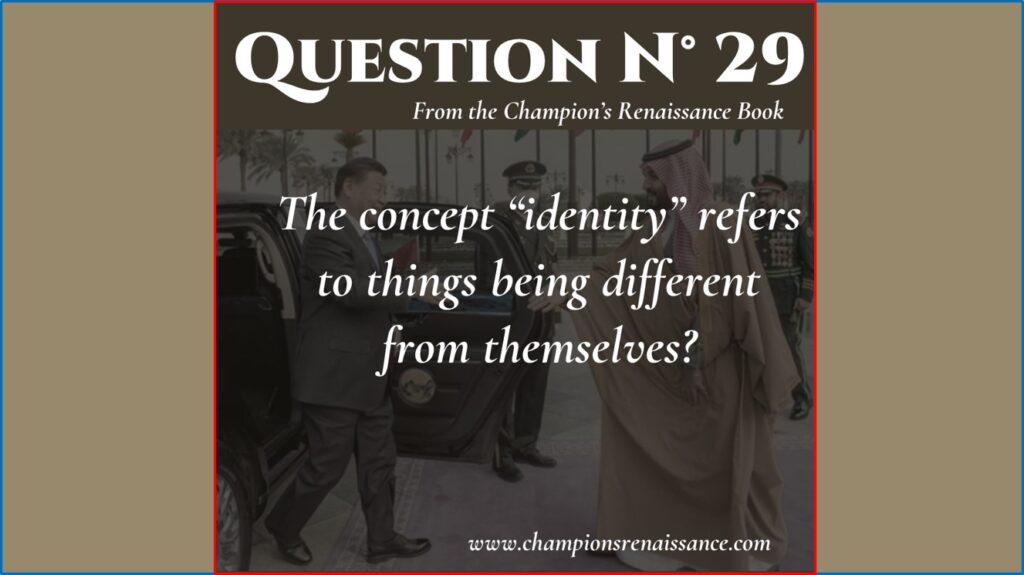
(Answer at the end).
GOOD FAITH
By Charles Kocian
As a clear sign of a strategic change towards a multipolar world, where BRICS has an important role, an important diplomatic meeting happened last week. The historic China-Arab summits was a “milestone” for Saudi Arabia and the whole region. The great reception Saudi Arabia did was a clear sign that the Arab nations desire to build stronger relations, beyond the US.
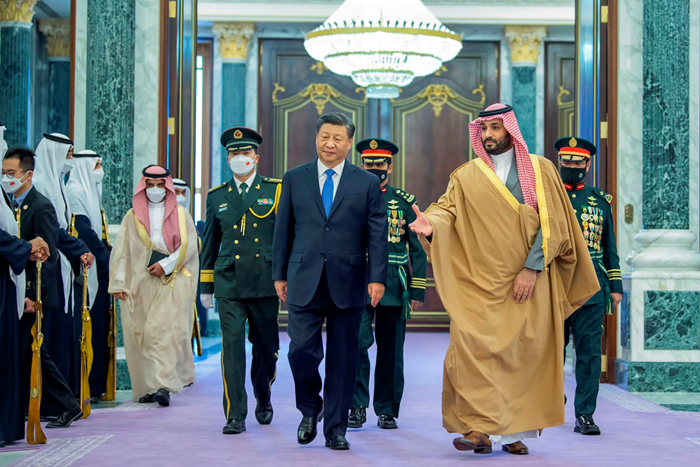
Xi Jinping and King Salman bin Abdulaziz Al Saud.
A set of economic, strategic and security treaties where signed. Saudi and Chinese companies have signed 34 investment agreements in Xi Jinping three-day visit. These documents show the fact that the United States is not dictating the Middle East foreign relations anymore.
More than that, it showed that U.S. foreign relations are lack of good faith and reason. Some writers have criticized the role of the Council on Foreign Relations in its decline diplomacy.
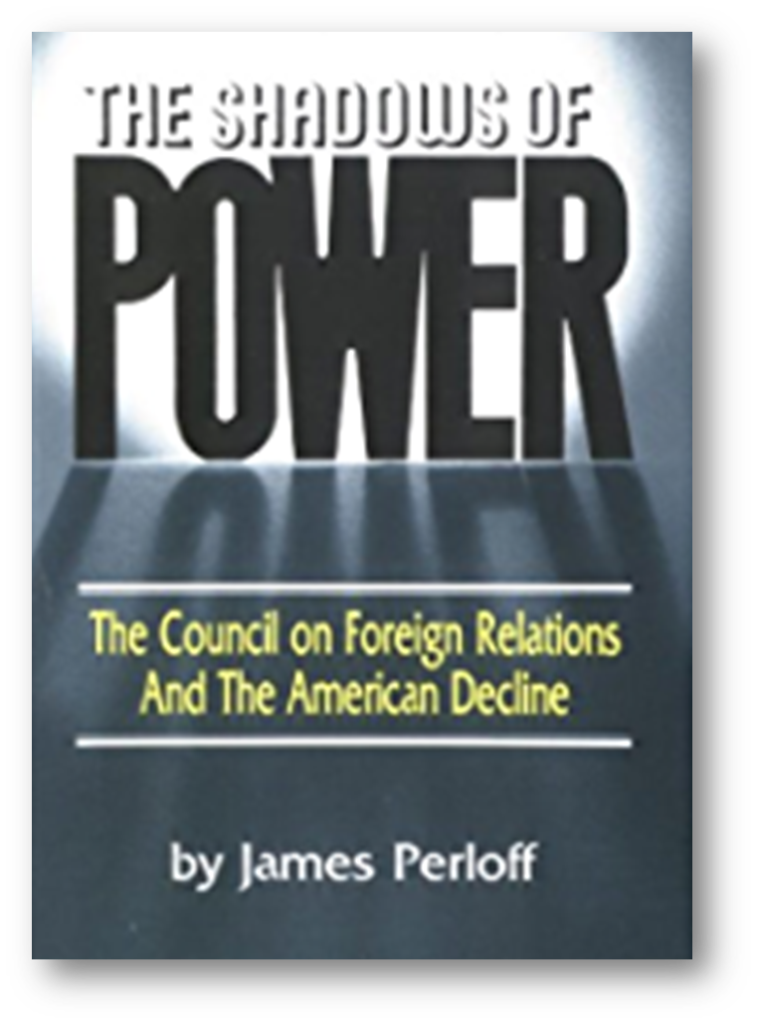
The Shadows of Power, by James Perloff.
In fact, Western foreign relation policies of the last four decades shows that the Western rulers have infringed the treaties they signed. In the contrary, the Russians and Chinese rulers when they sign a document, they abide by their signature. Why the East and Middle East should trust Western legislators if they don’t respect their signature?
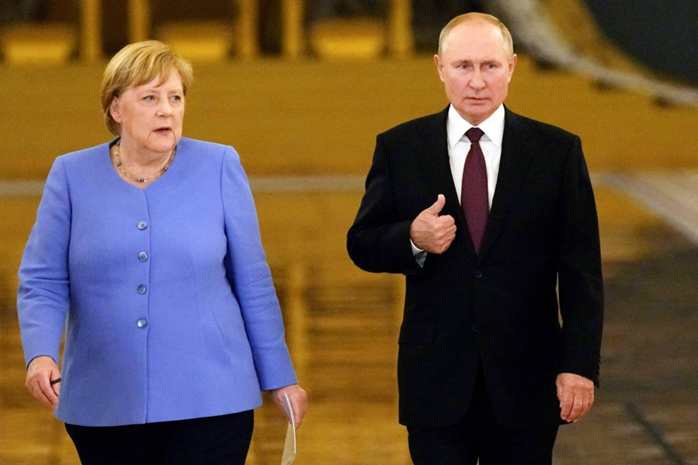
Angela Merkel recognized she signed the Minsk Agreements in bad faith.
Former German Chancellor Angela Merkel Admitted last week that she signed the Minsk Agreements in bad faith with Vladimir Putin. The only intention was to buy time for Ukraine to build up its army. So, it never had the intention of allowing the Russians in the Donbas to vote on their own future.
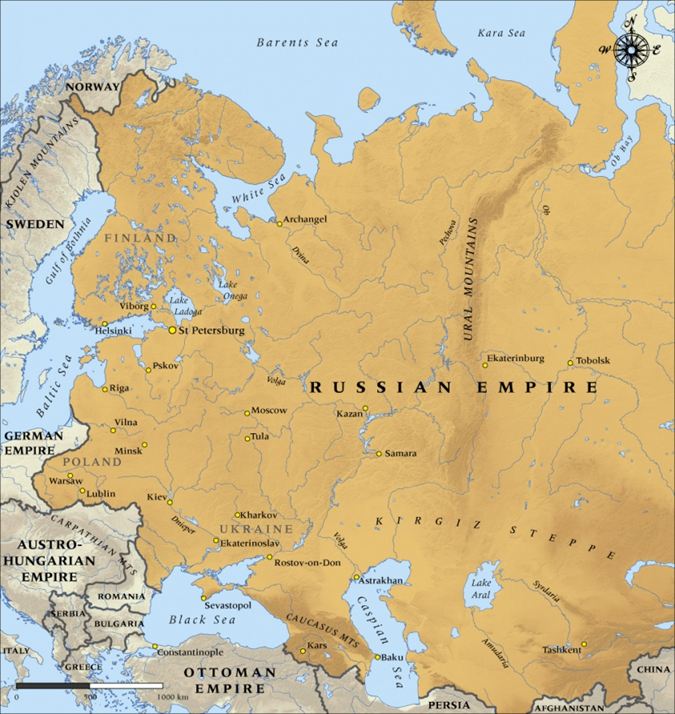
Map of the Russian Empire in 1914 that included the Donbas as part of its territory.
Although history shows that the Donbas region has been occupied by Russians for centuries, the current Ukrainian rulers prohibited them many things, even to speak Russian. This is like to prohibit in South-Florida to speak Spanish. That is not rational nor logic.
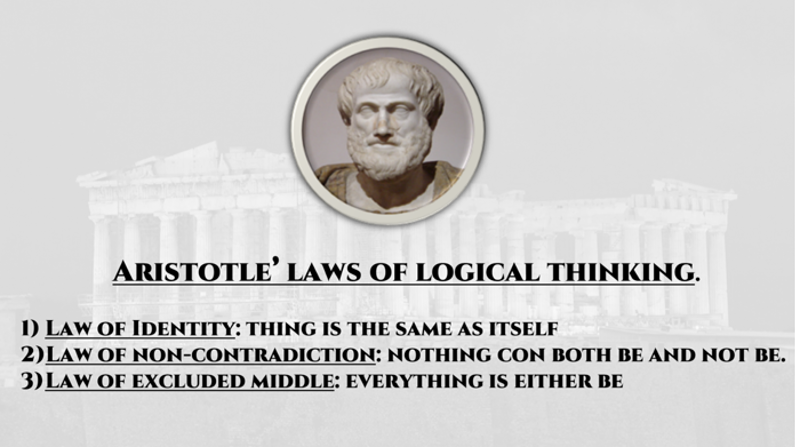
Aristotle’s Laws of Logic.
Have legislators studied the three laws of logical thought? Do they understand the law of identity, the law of noncontradiction and the law of excluded middle, all defined by Aristotle? Do they understand that politics stands on ethics and the latter on metaphysics and epistemology?
The Minsk Agreement signed in bad faith shows irresponsible legislators who redact improper documents that allows two different interpretations: one for Russia and one for Ukraine. Can words, in treaties, have objective definitions, meaning the same for all signing parts? Is that so difficult?
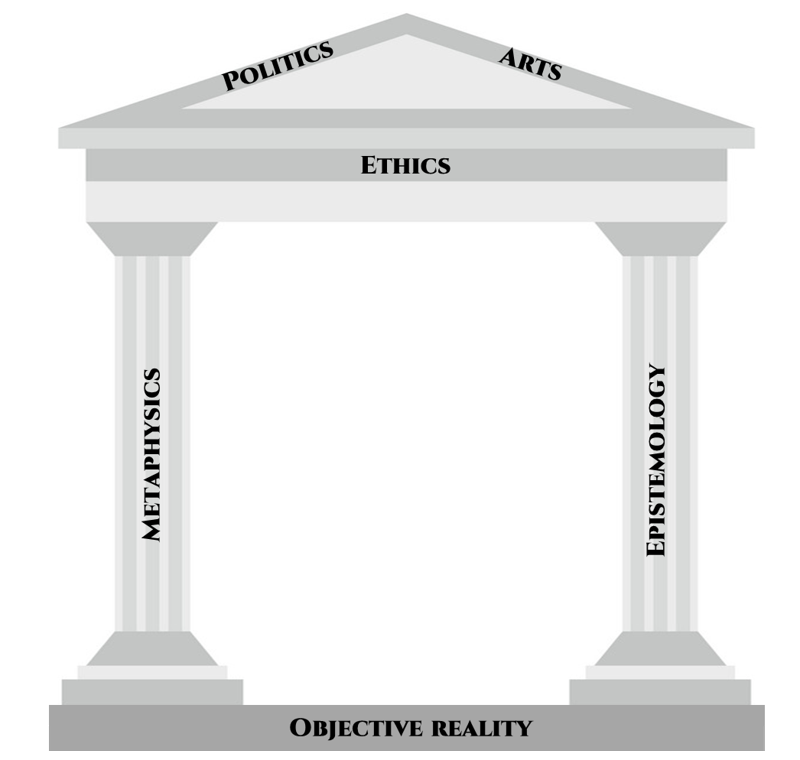
Epistemology as a fundamental pillar that sustains Ethics and Politics.
Do politicians are serious to study epistemology as one of the pillars of ethics and therefore of politics? They should study it urgently if we want to avoid a nuclear Armageddon.
Without nuclear bombs, that was not a problem for the most powerful rulers in the Renaissance: the popes of the Papal States.
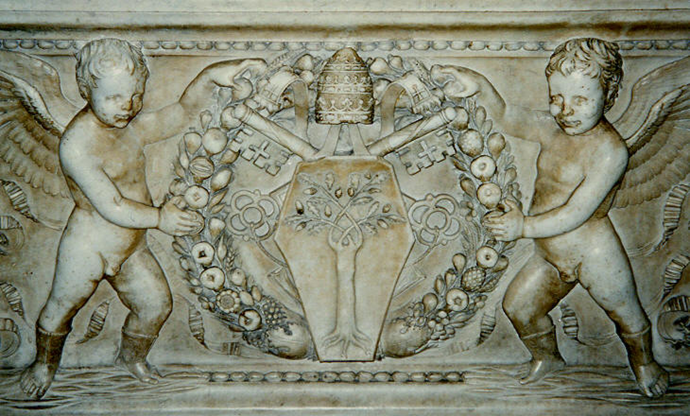
Coat of arms of Pope Sixtus IV in Cappella Sistina.
The Renaissance popes had more earthly than heavenly interests. Each of them created its own coat of arms. They were powerful secular rulers who signed treaties with other sovereigns to fight wars and to put their own family as rulers. During the Renaissance, the papal territory expanded and the pope became the most important ruler of today’s Italy.
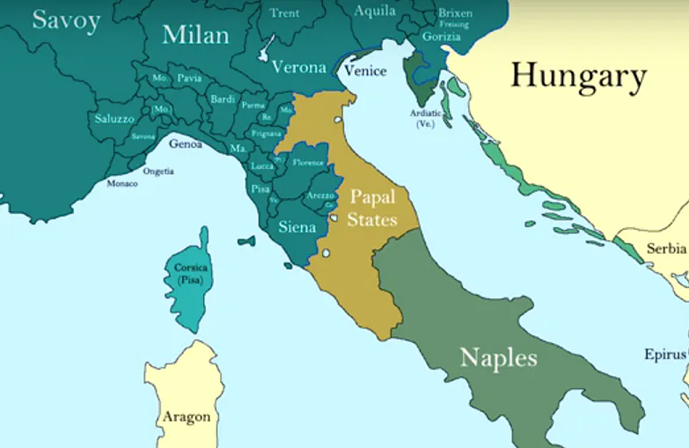
Map of the Papal States.
The Papal States covered most of the modern Italian regions of Lazio that includes Rome, Marche, Umbria and Romagna, and some parts of Emilia. These lands were justified as a manifestation of the temporal power of the Pope on Earth, as opposed to his ecclesiastical primacy on Heaven. Many secular popes reigned in that period.
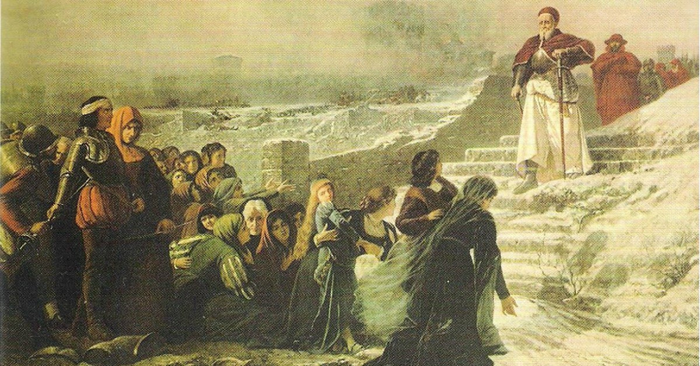
Pope Julius II, known as the Warrior Pope.
One of them was Pope Julius II became known as “the Warrior Pope” for his ongoing military campaigns. Pope Leo X expanded the sale of indulgences to finance the rebuilding of St. Peter’s Basilica that derived in the Protestant Reformation. Pope Alexander VI used its power to fund his son Cesare Borgia’s wars and had its famous daughter Lucrezia Borgia. She was a Spanish-Italian noblewoman of the House of Borgia, that reigned as the Governor of Spoleto and as daughter of the Pope.
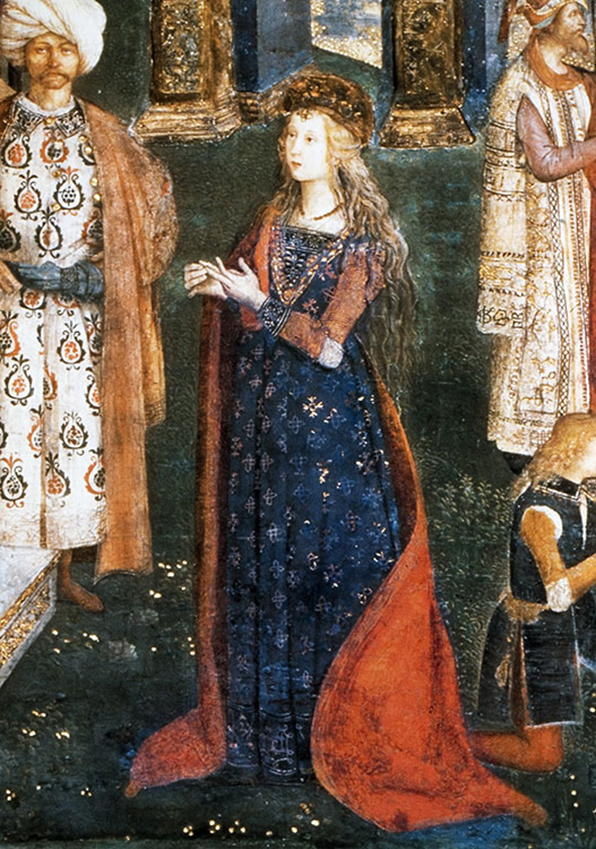
Lucrezia Borgia, noblewoman of the House of Borgia, daughter of Pope Alexander IV.
The popes ruled as absolute monarchs creating cardinal-nephews to maintain their power. According to Eamon Duffy, an Irish historian and professor of Christian history at the University of Cambridge, “the Renaissance papacy invokes images of a Hollywood spectacular, all decadence and drag. Contemporaries viewed Renaissance Rome as we now view Nixon’s Washington, a city of expense-account whores and political graft, where everything and everyone had a price, where nothing and nobody could be trusted. The popes themselves seemed to set the tone.”
The bad faith and double interpretation of the Minsk Agreements have a lot in common with the dishonest rulers of the papal states, but what about ancient Greece?
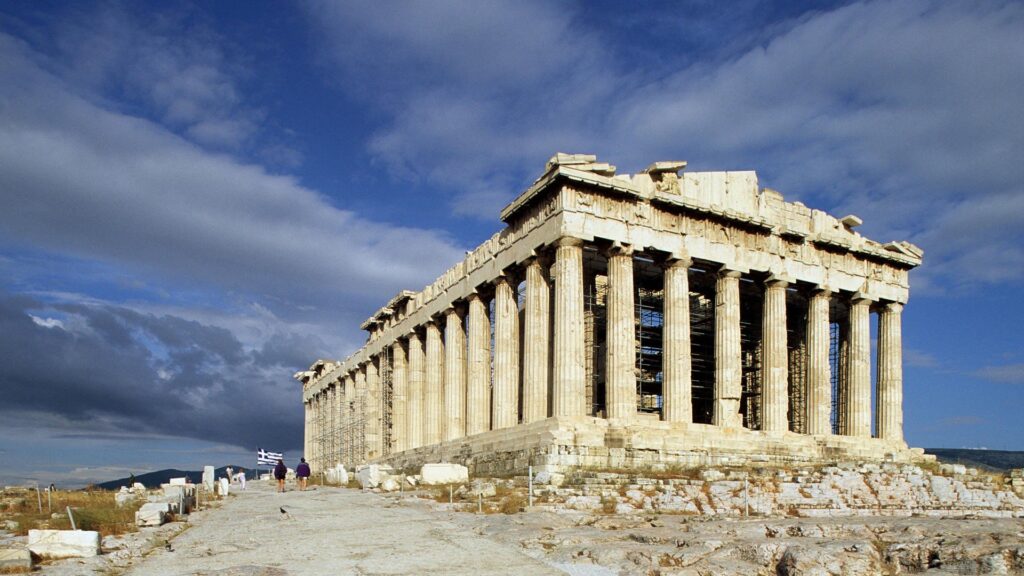
The Parthenon, the most powerful symbol of western culture achievements.
Ancient Greece, the cradle of European civilisation, was a culture based on rational thought, argumentation and competition. Philosophy, Science, Democracy and Olympics were developed and also the kleroterion, a device to select randomly citizens fairly to avoid rulers’ corruption.
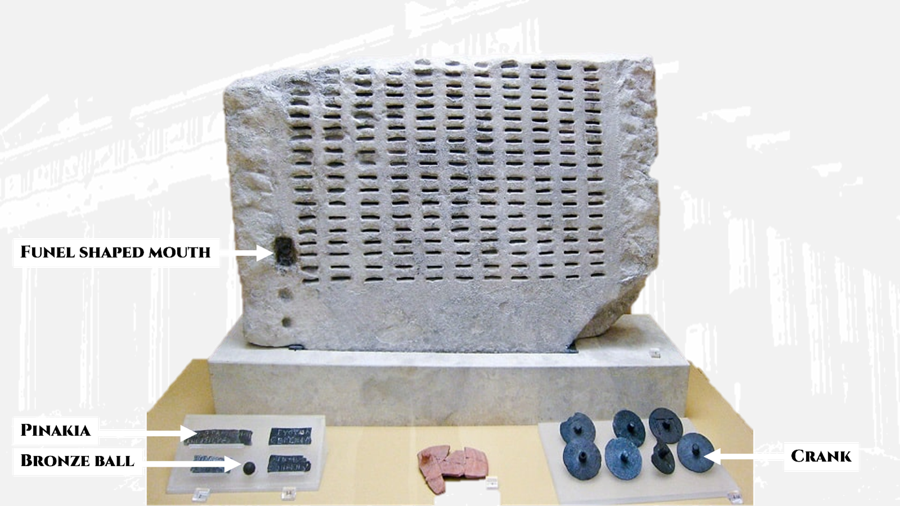
Kleroterion, a random device to choose rulers.
Common Peace and Reason were the central ideas for Ancient Greece diplomacy. The Greek City-States depended on proxenos who were states employees in order to relay messages from their leaders to other city-states in the context of reason and good faith. Homer’s Iliad contained many references to diplomatic missions, treaties, negotiations, and other concepts associated with diplomacy.
But what is the etymology of diplomacy?
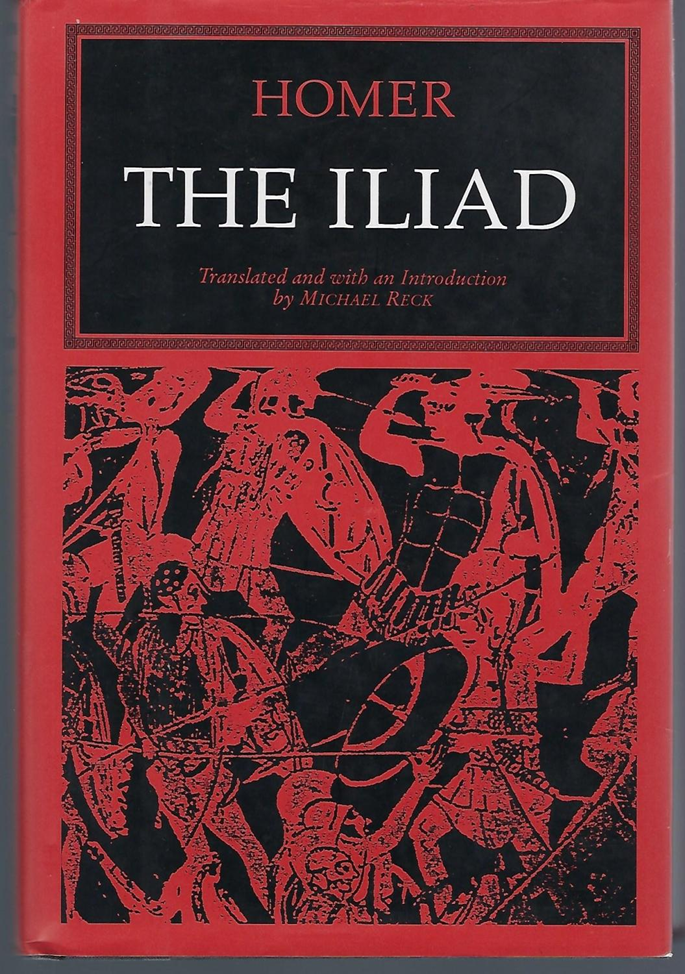
The Iliad, by Homer contains many references to diplomatic missions and treaties.
Diplomacy derives from an ancient Greek word and it is composed of diplo, meaning “folded in two”, and the word suffix -ma, meaning “an object”. The folded-in-two-document, was a bipartisan-contract and secured what it promised to the bearer. In the 18th century the French used the term to an authorised employee of a nation who can sign documents on behalf of the state, usually kings, presidents or prime ministers.
So, the rules to rule the ruled should be done by the rulers with high precision words to allow only one interpretation, as in the Olympic sports rules.
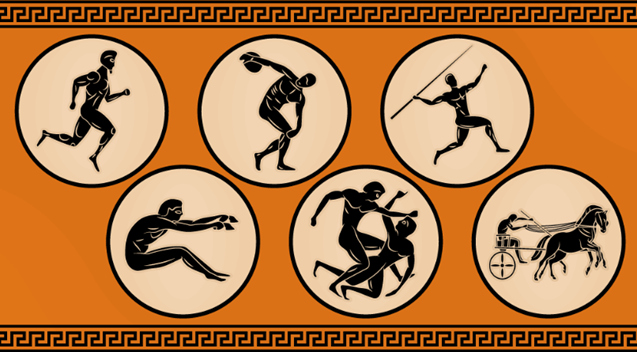
Image of ancient Olympics games, each sport with precise rules.
CONCLUSION
For the long-term prosperity of the nations, in a kind of Olympic Spirit competition, rulers should put reason as its main value when signing an international treaty. Foreign relations should be done not only in good faith but with strong contractual documents that only can have one objective interpretation. But, good faith is not enought. Legislators and rulers should study objective epistemology, seriously, if humanity wants to survive a nuclear Armageddon. And the ruled should do the same too, if they want to live in a better world that is able to choose rational legislators.
Now answer to question 29.
QUESTION N° 29
The concept “identity” refers to things being different from themselves.
a) True
b) False
The answer is: false. The Law of Identity defined by Aristotle says that: If A is A, it cannot be A and something else at the same time.
Leave your comments here.
